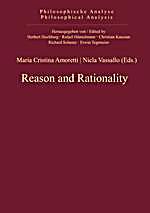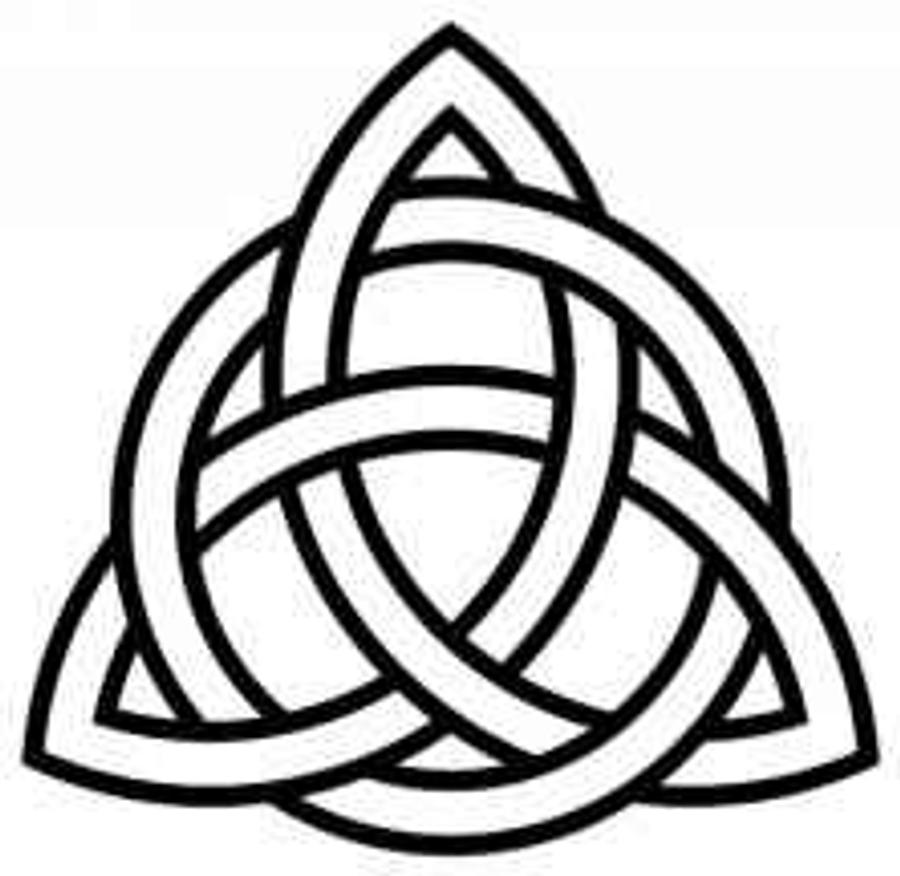On the genealogy of morality
Data: 3.03.2018 / Rating: 4.8 / Views: 837Gallery of Video:
Gallery of Images:
On the genealogy of morality
NIETZSCHES ON THE GENEALOGY OF MORALITY challenging work of ethics. On the Genealogy of Morality, or On the Genealogy of Morals (German: Zur Genealogie der Moral), subtitled A Polemic (Eine Streitschrift), is a book by German philosopher Friedrich Nietzsche, composed and first published in On the Genealogy of Morality. Friedrich Nietzsche Translation and Notes by Maudemarie Clark and Alan J. Swensen, Introduction by Maudemarie Clark Nietzsche, On the Genealogy of Morality Essay Two Notes by John Pro tevi Permission to reproduce granted for academic use Please do not cite in any publication. [Friedrich Wilhelm Nietzsche; Keith AnsellPearson; Carol Diethe This is a revised and updated edition of one of the most successful volumes to appear in 'Cambridge Texts in the History of Political Thought Keith AnsellPearson has modified his introduction to. Download Citation on ResearchGate Nietzsche: On the genealogy of morality Introduction to Nietzsche's Text Although it has come to be prized by commentators as his most important and. Nietzsche: On the Genealogy of Morality and Other Writings (Cambridge Texts in the History of Political Thought) 16 Jan 2017 by Friedrich Nietzsche and Keith AnsellPearson book by German philosopher Friedrich Nietzsche. This page was last edited on 6 September 2018, at 03: 02. All structured data from the main, property and lexeme namespaces is available under the Creative Commons CC0 License; text in the other namespaces is available under the Creative Commons License; additional terms may apply. By using this site, you agree to the. On the Genealogy of Morals First Essay Good and Evil, Good and Bad. These English psychologists whom we have to thank for the only attempts up to this point to produce a history of the origins of moralityin themselves they serve up to us no small riddle. In the way of a lively riddle, they even offer, I confess, something. On the Genealogy of Morals Friedrich Nietzsche (1887) concerns itself with morality, time I brought into the light of day that hypotheses about genealogy to which these essays have been dedicatedbut clumsily, as I will be the last to deny, still fettered, still This is a short summary of Friedrich Nietzsche's first essay on the Genealogy of Morality. Friedrich Nietzsche is one of the most inuential thinkers of the past 150 years and On the Genealogy of Morality (1887) is his most important work on ethics and politics. A polemical contribution to ON THE GENEALOGY OF MORALITY. THE BIRTH OF PESSIMISM IN ZAPFFES ON THE TRAGIC SILVIYA SERAFIMOVA Institute for the Study of Societies and Knowledge, BAS Abstract This article examines the genealogy of morality, as represented by the Norwegian philosopher and writer Peter Wessel Zapffe, as well as the way it affected the. Nietzsche's On the Genealogy of Morality (1887) is a forceful, perplexing, important book, radical in its own time and profoundly influential ever since. This introductory textbook offers a comprehensive, close reading of the entire work, with a sectionbysection analysis that also aims to show how. On the Genealogy of Morals (1887) is a book about interpretation and the history of ethics which raises profoundly disquieting issues about the violence of both. This is the most sustained of Nietzsche's later works and offers one of the fullest expressions of his characteristic concerns. On the Genealogy of Morality, or On the Genealogy of Morals (German: Zur Genealogie der Moral), subtitled A Polemic (Eine Streitschrift), is a work by German philosopher Friedrich Nietzsche, composed and first published in 1887 with the intention of expanding and following through on certain new doctrines sketched out in his previous work. 39 quotes from On the Genealogy of Morals: We are unknown to ourselves, we men of knowledge and with good reason. We have never sought ourselves how On the Genealogy of Morality contains some of Nietzsche's most disturbing ideas and images: eg the 'slave revolt' in morality, which he claims began with the Jews and has now triumphed, and the 'blond beast' that must erupt, which he claims to find behind all civilisation. It is therefore a major source for understanding why 'Nietzschean' ideas are controversial. Masterslave morality is a central theme of Friedrich Nietzsche's works, in particular the first essay of On the Genealogy of Morality. Nietzsche argued that there were two fundamental types of morality: master morality and slave morality. Free kindle book and epub digitized and proofread by Project Gutenberg. Friedrich Nietzsche On the Genealogy of Morals Prologue 1 We don't know ourselves, we knowledgeable peoplewe are personally ignorant about ourselves. texts All Texts latest This Just In Smithsonian Libraries FEDLINK (US) Genealogy Lincoln Collection Additional Collections. Top American Libraries Canadian Libraries Universal Library Community Texts Project Gutenberg Biodiversity Heritage Library Children's Library. Full text of The genealogy of morals Friedrich Nietzsche ( ) was a German philosopher and cultural critic who published intensively in the 1870s and 1880s. He is famous for uncompromising criticisms of traditional European morality and religion, as well as of conventional philosophical ideas and social and political pieties associated with modernity. From a general summary to chapter summaries to explanations of famous quotes, the SparkNotes Genealogy of Morals Study Guide has everything you need to ace quizzes, tests, and essays. Buy On the Genealogy of Morality: A Polemic (Hackett Classics) New Ed by Friedrich Nietzsche, Maudemarie Clark, Alan J. Swensen (ISBN: ) from Amazon's Book Store. Everyday low prices and free delivery on eligible orders. Summary of Nietzsche's Genealogy of Morals (the Preface) given by Helen from (nudeanswers. Helen exposes the main ideas Nietzsche is laying out for the. Melvyn Bragg and guests discuss Nietzsche's On The Genealogy of Morality A Polemic, which he published in 1887 towards the end of his working life and in which he considered the price humans. On the Genealogy of Morals (1887) is a book about the history of ethics and about interpretation. Nietzsche rewrites the former as a history of cruelty, exposing the central values of the JudaeoChristian and liberal traditions compassion, equality, justice as the product of a brutal process of. Nietzsche, On the Genealogy of Morality Preface Essay One (Revised: 5 February 2002) Notes by John Protevi Permission to reproduce granted for academic use Please do not cite in any On the Genealogy of Morals by Friedrich Nietzsche portrays morality not as a series of abstract and transcendent principles, but rather a series of ideological positions that evolved in response to Hackett's On the Genealogy of Morality (we now have even the correct title! ) may very well change the entire climate for reading Nietzsche in Englishespecially if read in conjunction with their equally splendid Twilight of the Idols. Genealogy and morality For Nietzsche, morality represents a system of errors that we have incorporated into our basic ways of thinking, feeling and living; it is the great symbol of our profound ignorance of ourselves and the world. Nietzsche's moral philosophy is primarily critical in orientation: he attacks morality both for its commitment to untenable descriptive (metaphysical and empirical) claims about human agency, as well as for the deleterious impact of its distinctive norms and values on the flourishing of the highest types of human beings (Nietzsche's higher men). Nietzsche's Genealogy of Morals Here, Nietzsche uses the term genealogy in its fundamental sense: an account (logos) of the genesis of a thing. He is going to offer a theory of the genesis of Christian morality, which he believes is also democratic morality. On The Genealogy of Morals is made up of three essays, all of which question and critique the value of our moral judgments based on a genealogical method whereby Nietzsche examines the origins and meanings of our different moral concepts. com: On the Genealogy of Morality ( ) by Friedrich Wilhelm Nietzsche and a great selection of similar New, Used and Collectible Books available now at great prices. Nietzsche: 'On the Genealogy of Morality' and Other Writings: Revised Student Edition (Cambridge Texts in the History of Political Thought) Friedrich Nietzsche 4. 3 out of 5 stars 26 'A Genealogy of Morality' asserts a twofold approach: the first half is concerned with positioning Nietzsches thought in the discourse on morality and crime between 1850 and 1900, a period that found itself The last decade has seen a flurry of publications on Nietzsche's ethics and specifically on his critique of morality put forward in On the Genealogy of Morality. On the Genealogy of Morals part 2: The slave morality In the second part of our series on Nietzsche, we examine his belief that Christian doctrine is hatred dressed up as love Giles Fraser This new edition is the product of a collaboration between a Germanist and a philosopher who is also a Nietzsche scholar. The translation strives not only to communicate a sense of Nietzsche's style but also to convey his meaning accuratelyand thus to be an important advance on previous translations of this work. A superb set of notes ensures that Clark and Swensen's Genealogy will become. A Genealogy of Morality 2 Wohl bin ich ein Wald und eine Nacht dunkler Bume: doch wer sich vor meinem Dunkel nicht scheut, der findet auch Rosenhnge unter meinen Cypressen. 1 To be sure, I am a forest, and a night of dark trees: but he who is not afraid of my darkness, will find banks of roses Find great deals on eBay for on the genealogy of morality. On the Genealogy of Morality: A Polemic ( German: Zur Genealogie der Moral: Eine Streitschrift ) is an 1887 book by German philosopher Friedrich Nietzsche. It consists of a preface and three interrelated essays that expand and follow through on concepts Nietzsche sketched out in Beyond Good and Evil (1886). The three Abhandlungen trace episodes in the evolution of moral concepts with a view. The Genealogy of MoralsFirst Essay. present are the only philosophers who are to be thanked for any endeavour to get as far as a history of the origin of moralitythese men, I say, offer us in their own The crass ineptitude of their genealogy of morals is immediately apparent when the question arises of ascertaining the. Within his polemical treatise On the Genealogy of Morals Friedrich Nietzsche twists standard precepts of morality into a delicious pretzel barely recognizable from original conceptions. Nietzsche, Genealogy, History 1. Genealogy is gray, meticulous, and patiently documentary. It operates on a field of entangled and confused parchments, on documents that have been scratched over and recopied many A genealogy of values, morality, asceticism, and knowledge On the Genealogy of Morality is Nietzsche's most influential, provocative, and challenging work of ethics. In this volume of newly commissioned essays, fourteen leading philosophers offer fresh insights into many of the work's central questions: How did our dominant values originate and what
Related Images:
- Windows xp original cd
- Suits season 4 mp4
- Smithsonian channel secrets
- Seigneur des anneaux
- Queen let me heart
- Crack assassins creed 4 black flag
- Us masterchef s05e09
- Greys anatomy 5x1 ita
- Four tops greatest
- Oceania Smashing Pumpkins
- Green lantern secret origin
- Parenthood season 3
- The good wife season 5 hdtv
- Killer Women S01E08
- 100 s02 1080p
- Day of past future
- Single ladie beyonce
- Fun volleying balls in the pool madison scott nika noire
- The call of duty advanced warfare
- 1992 pc games
- Whats your number dc
- Mischa brooks teen
- Crysis 2 keygen
- Rocco psycho 2
- Beautiful creature fre
- Life as a house
- 720p hdtv x264 repack
- Hercules dwayne johnson
- A todo gas 5
- La las full court
- The mentalist hdtv season 1
- Alan carr s11
- Best of stevie
- Double Decker Sandwich 2
- John d barrow
- Autodesk Civil 3D 2012
- The black eyed peas live from sidney to vegas
- Guten tag 2012
- 2 or 3
- Fhm india sept
- The broken circle breakdown
- Ashampo burning studio free
- Triad Underworld 2004
- The bronx bull
- 1080p future past
- Family guy patriot games
- Come get with it
- Heart attack 2014
- Wwe hell in a cell 2012
- I see you
- New mp3 week 42
- Spain grand prix 2013
- Last Week Tonight with John Oliver s01e09
- Avi scooby doo
- Psp hokuto no ken
- Stronghold 2 iso
- How to train your dragon 2 dutch
- Once upon a time s03e16
- Saturday night live mccartney
- Rectify 2013 s01e03
- Party flyer template
- Walking s02e07 720
- Thompson twins greatest hits
- Were the party
- Will smith songs
- Yo yo honey singh songs video
- 1080p latino dinosaur
- The americans s1e02
- Audi a4 manual
- The new order
- Suits s02 dvd
- The affair 1x3
- Driver genius professional 2006
- The assisted living
- Akuji the heartless
- Originals s02e01 480p
- The chronic dre
- Bloody birthday yify
- Edgar allan poe black cat
- Novo 3 apk
- The father and the son
- Captain america return
- Booty feat pitbull
- Naruto ultimate ninja storm
- Dvdrip hindi 1998












